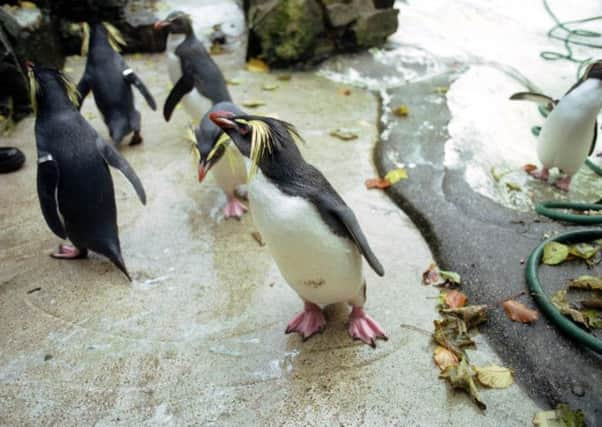Comment: The Commonwealth and conservation


So, it’s always nice to start with an interesting fact and here’s mine: it is estimated that the UK Overseas Territories contain an estimated 90 per cent of the UK’s biodiversity. It’s an incredible statistic, as well as responsibility, to think that, as a result of owning these territories, the majority of which are oceanic, our environmental jurisdiction extends beyond red squirrels and wildcats to rockhopper penguins, blue iguanas and black-browed albatrosses. Like everywhere else in the world though, these areas are losing biodiversity due to invasive non-native species, urban development, environmental disasters and climate change.
As a conservation body, we recognise that the conservation of their natural environments is a national priority, and so we do what we can, and work out where to provide the most appropriate support.
Advertisement
Hide AdAdvertisement
Hide AdAt the moment, RZSS is supporting a Darwin Initiative-supported project on raptors on the Falkland Islands. The project is focusing on the conflict between humans and raptors such as the southern caracara, turkey vulture and striated caracara. In the latter’s case, up to 90 per cent of this breed can be found on the Falklands, and yet it is listed as “near threatened” owing to small populations and restricted distribution. They all face persecution by landowners who regard them as causing economic loss. There is also concern that these raptors are having a negative impact on species such as gentoo penguins which are a mainstay for tourism.
Understanding the ecology and social interactions of these raptors is vital if we are to encourage raptor rural livelihood interactions which protect livestock and safeguards raptors. The Falkland Island project will therefore entail scientific investigation and extensive consultation with locals with the aim of making recommendations that balance livelihood interests with conservation objectives. A Species Action Plan for the striated caracara is planned alongside strategies to reduce conflicts and protecting raptors.
A couple of years ago, a member of RZSS lived on the uninhabited Henderson Island in the South Pacific for a few months in an effort to look after the Henderson rail as rats had gotten on to the island and were threatening this bird.
With the only solution being to dispense rodenticide from bait buckets slung beneath helicopters, this action potentially placed the rail at risk to ingesting the bait.
Our member of staff’s expertise in aviculture was essential to protect the species during the baiting programme – catching and securing a population of 84 birds. Caring for them on a daily basis, he even succeeded in encouraging one pair to breed in captivity.
Finally, Tristan da Cunha, 2400 km from Cape Town, is the most isolated inhabited island in the world and a key site for rockhopper penguins. In 2011, a bulk carrier with thousands of tonnes of soya beans on board ran aground and caused an oil spillage that soon surrounded the whole island.
Rockhopper penguins started coming ashore, smothered in oil. An inflatable rib, purchased with RZSS money, was immediately put into action, ferrying conservation workers as part of a clean-up and to bring in the birds.
Within three weeks, over 3600 oiled penguins were admitted to a rehabilitation centre. Although many died, thousands were cleaned up and released. Although the full impact of the wreck is still not known, our early involvement in paying for a boat allowed intervention in the vital early days.
Advertisement
Hide AdAdvertisement
Hide AdSo, while we continue to celebrate all the good things the Commonwealth Games brought this summer, let’s celebrate the good things Scotland has delivered to the commonwealth too.
• Chris West is the chief executive of the Royal Zoological Society of Scotland www.rzss.org.uk